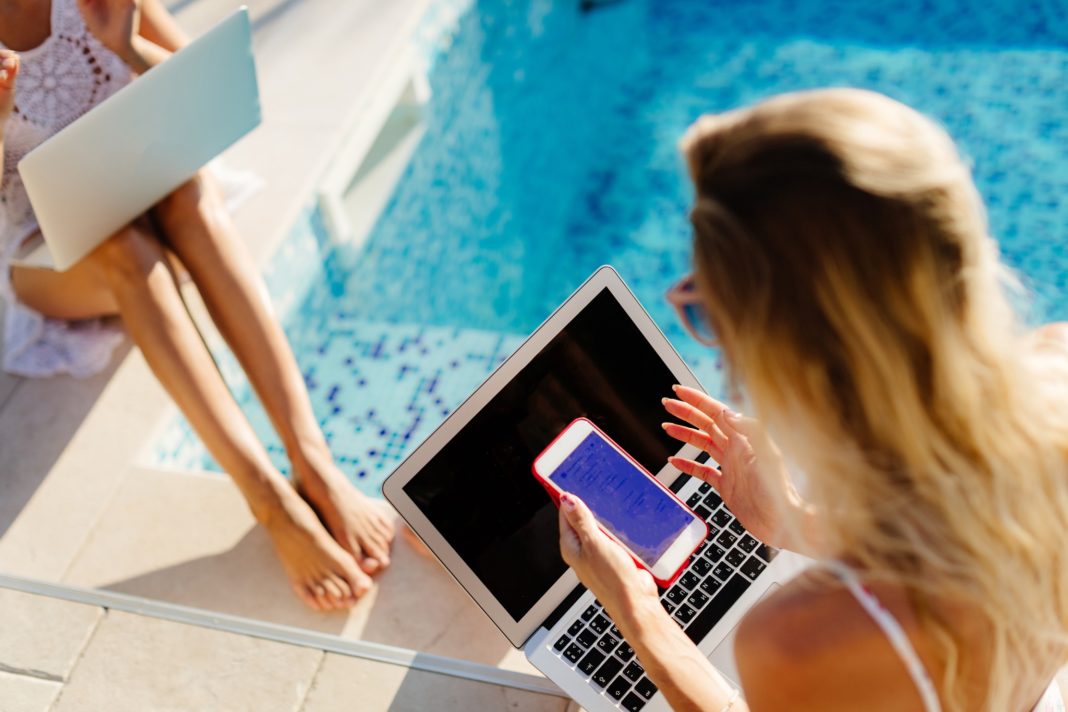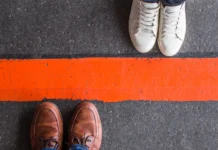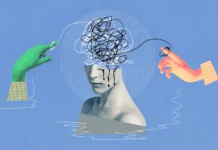Imagine sitting alone at a restaurant waiting for a friend. How do you pass the time? Do you look around? Do you savor the alone time to reflect? Do you allow yourself to daydream? Odds are you do none of the above. You reach for your phone and don’t look up until your friend arrives.
Using our phone as a time-filler whenever there is a free moment is now the norm. Waiting on line, in between conversations at a cocktail party, before a meeting begins, sitting in a taxi, along with every other “in-between” moment, are now invitations to connect with our devices instead of the world around us or ourselves.
Is it really that hard to sit in solitude without anything to do? The short answer is yes. According to research conducted at the University of Virginia, people do not enjoy being left alone with their thoughts. Participants in the study were seated in sparsely furnished rooms for 15 minutes without any distraction—no phone, no book, no paper, no pen. The only diversion was a button they could push to shock themselves. Before the experiment began, the researchers administered a brief zap to demonstrate how it felt. It wasn’t pleasant—all participants said that they wouldn’t want to be shocked again. But this changed once the experiment was underway. In the 15 minutes of solitude, 67% of the men and 25% of the women zapped themselves. Even the researchers were shocked by the shocks.
“What is striking is that simply being alone with their own thoughts for 15 min was apparently so aversive that it drove many participants to self-administer an electric shock that they had earlier said they would pay to avoid.”
It is tempting to blame the overuse of devices to provide non-stop entertainment and distraction. Interestingly, however, difficulty being alone was unrelated to age or use of technology. A grandmother was as miserable as a college freshman when forced to entertain herself. Perhaps the best explanation for this “shocking” behavior is the “scanner hypothesis” which posits that mammals have evolved to monitor their environment for change and to scan for danger and opportunities. As the lead researcher, Timothy Wilson, explains:
“It would be a little odd to see a chimpanzee posed like Rodin’s thinker for extended periods of time.”
Downtime of any kind can be challenging. Few savor the idea of taking time to “just think” or relax. Distraction is our default mode. I have a number of patients who have difficulty winding down. As one patient explained, “the more I try not to think about work, the more I think about work.” Another dreads the peace and quiet: “I miss the energy of the office.” A third rejects the expectation to chill out: “I told my partner I cannot be told to relax on command.” Vacation trepidation affects many who are used to leading “crazy busy” lives.
There may be an evolutionary explanation for feeling uncomfortable when left alone with our thoughts. That said, there is an advantage to learning to sit without distraction. In fact, research shows that solitude is crucial for the development of the self. As highlighted in a study entitled, Solitude: An Exploration of Benefits of Being Alone, solitude is associated with creativity, intimacy, and spirituality. Spending time alone allows for growth and reflection. There is also evidence that it can improve relationships and builds empathy. French philosopher Blaise Pascal said, “All of humanity’s problems stem from man’s inability to sit in a quiet room alone.”
Meditation and other relaxation techniques are well-established strategies to make downtime more tolerable and perhaps even productive. By gaining control over our thoughts, little annoyances like traffic jams and waiting rooms become less stressful and the big questions become less daunting.
Boredom isn’t such a bad thing, especially when you reframe it as an opportunity to use your imagination. In an article in GQ magazine, Lin-Manuel Miranda, the mastermind behind the hit show “Hamilton,” talks about a childhood friend who once spent a three-hour car ride playing with a stick he found in the backyard.
Sometimes the stick was a man, sometimes a piece in a larger game, or he’d give it voices, pretend the stick was a telephone. I remember sitting there next to him with my ‘Donkey Kong’ thinking, ‘Dude, you just entertained yourself for three hours … with a f–king twig!’ And I thought to myself, ‘Wow, I have to raise my imagination game.’
Miranda says “time alone is the gift of self-entertainment—and that is the font of creativity. Because there is nothing better to spur creativity than a blank page or an empty bedroom.“
Next time you find yourself with nothing to do, instead of staring at a screen, channel a famous refrain from one of the songs in Hamilton: Look around, look around. How lucky we are to be alive right now.
These days I spend a lot of time talking to my patients about how they spend their days. I prescribe at least fifteen minutes a day, every day, of doing NOTHING. As a result, their mindset about free time has shifted. Instead of thinking of downtime as a source of anxiety, they now think of it as an opportunity. Best of all, they look forward to their vacations.
I wish you all the best,
Dr. Samantha Boardman






